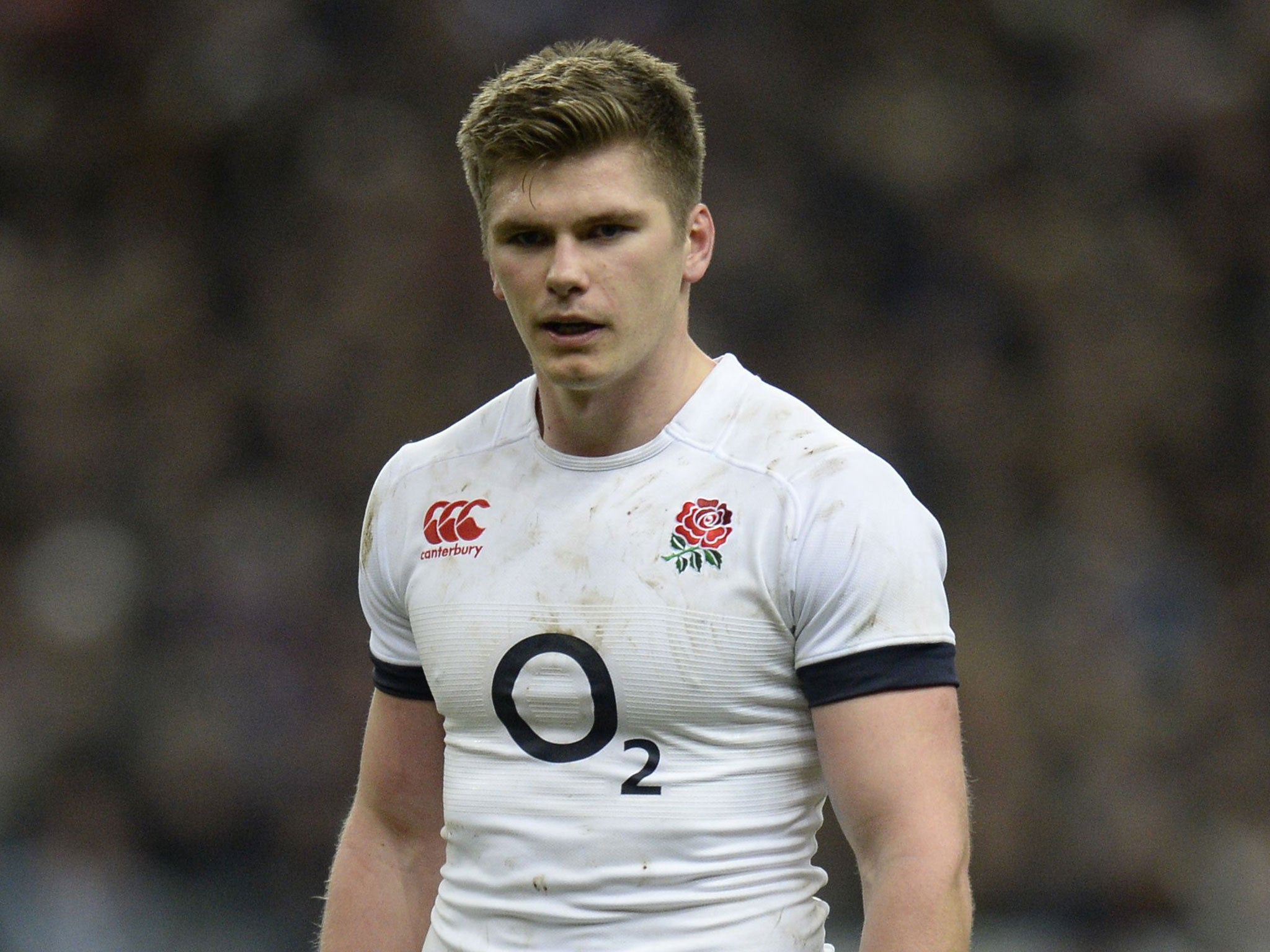Six Nations 2014: Hurting Owen Farrell needed George Ford in the right gear for England against France
Owen Farrell suffered cramp in the late stages in Paris, with no fly-half available to replace him

Your support helps us to tell the story
From reproductive rights to climate change to Big Tech, The Independent is on the ground when the story is developing. Whether it's investigating the financials of Elon Musk's pro-Trump PAC or producing our latest documentary, 'The A Word', which shines a light on the American women fighting for reproductive rights, we know how important it is to parse out the facts from the messaging.
At such a critical moment in US history, we need reporters on the ground. Your donation allows us to keep sending journalists to speak to both sides of the story.
The Independent is trusted by Americans across the entire political spectrum. And unlike many other quality news outlets, we choose not to lock Americans out of our reporting and analysis with paywalls. We believe quality journalism should be available to everyone, paid for by those who can afford it.
Your support makes all the difference.After one of those matches in which either team could claim quite justifiably that they did enough to win, but only one gets to bask in the spotlight of glory, England will not need to search hard for wrongs to put right.
A bungled line-out in a prime attacking position early in the final quarter echoed the collapse of that much-practised discipline in the loss to New Zealand in November. And selection and sheer bad luck left the otherwise increasingly impressive Owen Farrell painfully ineffective in the crucial last few minutes, heaving his body around the Stade de France on cramped-up legs more suited to propping up a trestle table. We felt the fly-half’s pain; we also wondered hard why George Ford was not on the bench, whence he could have put poor Farrell out of his misery.
Obviously the theory in the event of Farrell going lame was that either Billy Twelvetrees or Alex Goode would move up and fill in. England’s midfield cover on the bench was Brad Barritt, a centre. Ford, a specialist fly-half unlike Twelvetrees or Goode, was in Paris, but only alongside Matt Mullan and Anthony Watson as a travelling reserve, which is a means of avoiding last-minute rushes for the plane and of exposing the uninitiated to some of what goes on in full-Test rugby. Ford stood in the players’ tunnel beforehand in a blue tracksuit top – only active participants receive the proper plum-coloured gear – like a lad invited to the pub but forbidden from having a pint.
So the 20-year-old Bath playmaker watched with everyone else as England’s tyro wings were ruthlessly clipped. A broken nose removed Jonny May early on; Jack Nowell had a great deal more to say for himself, shrugging off a fumble from the kick-off that really was the fault of a mistimed catch by the forwards in front of him, to make hard runs into and beyond contact, and hammer the French with the tackles of a wing well used to playing full-back. May and Nowell might not have started at all if Christian Wade and Marland Yarde had been fit, or Chris Ashton been on red-hot form.
Eventually Nowell, on a yielding pitch and probably drained by the adrenaline rush of a debutant, suffered cramp at the same time as Farrell. When it came to Gaël Fickou’s brilliant winning try for France, the England back line was badly out of kilter with Luther Burrell and Mike Brown – a centre and a full-back – manning the wings, which was where Fickou’s try was created.
The BBC’s pre-match showreel of past tries from England v France included two that featured a Fickou-esque flick of the wrists to beat a defender: by Eric Bonneval for Philippe Sella to score in 1986 and Jon Webb on his own in 1992. In each case, and in Goode’s as England’s last man on Saturday, the dummied player – the dummee, shall we say? – may have cursed himself for not following every schoolboy’s edict of tackling the attacker closest to him. But there is an instinct that sends you to a place you do not want to be and Fickou referred to it post-match as “something that we do not control, which is played in a split second”.
It left Sir Clive Woodward on TV screaming about England’s need to learn how to “close a game out”. The ghost of Jonny Wilkinson fluttered over the Stade de France. Would old Golden Oval Balls have dabbed a kick here, cajoled his forwards there – and used his instinct to send the French to places they did not want to go? This kind of decision-making is high among Ford’s points of difference, as Stuart Lancaster likes to refer to elements of talent.
The Grand Slam is gone already for England, for the 11th season running. But the title could still be theirs, and their remaining fixtures could not be kinder: away to Scotland and Italy either side of Ireland and Wales coming to Twickenham.
The astonishing dynamism of Billy Vunipola at No 8 surely ended any lingering yearning for Nick Easter’s subtler ball skills. Ashton or yet another wing may need to be whistled up to replace May. And of all the Plan Bs to consider sooner rather than later, Ford should be allowed to properly understudy his buddy since schooldays, Farrell.
Join our commenting forum
Join thought-provoking conversations, follow other Independent readers and see their replies
Comments